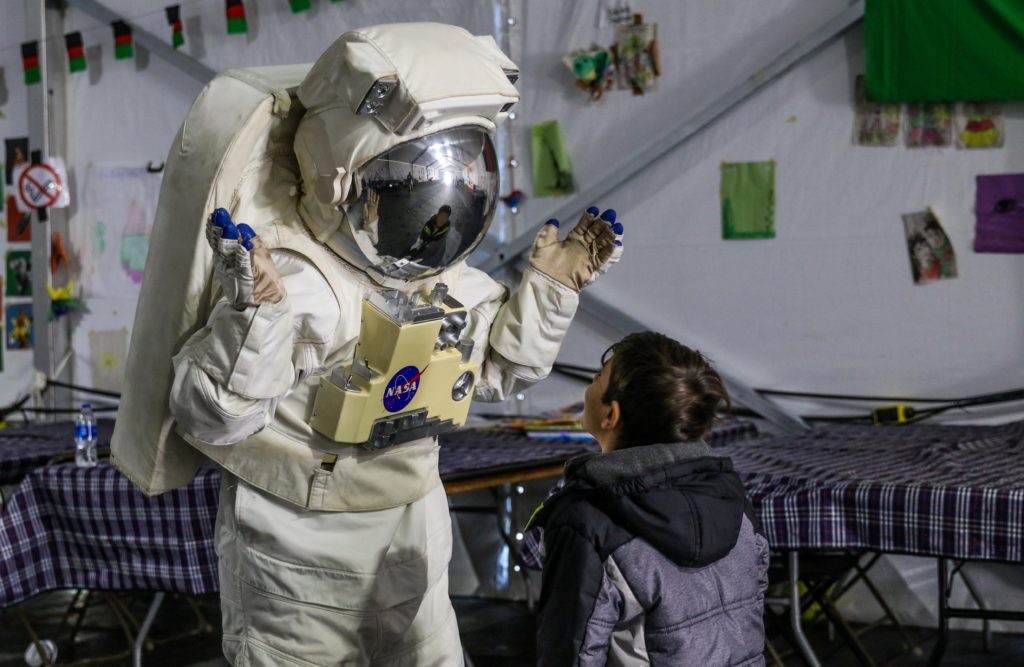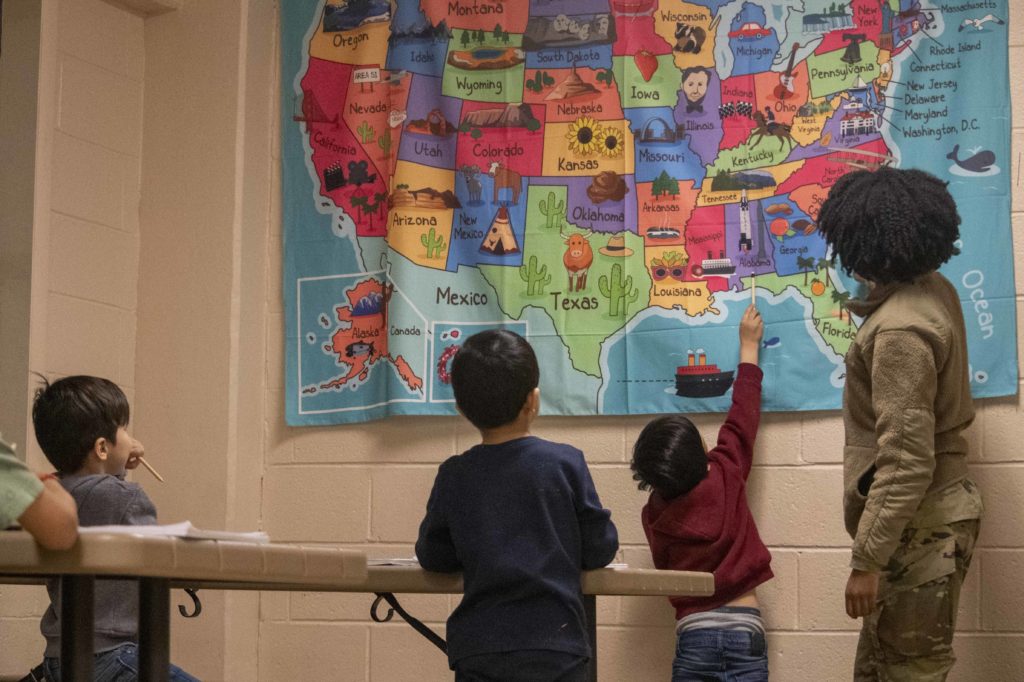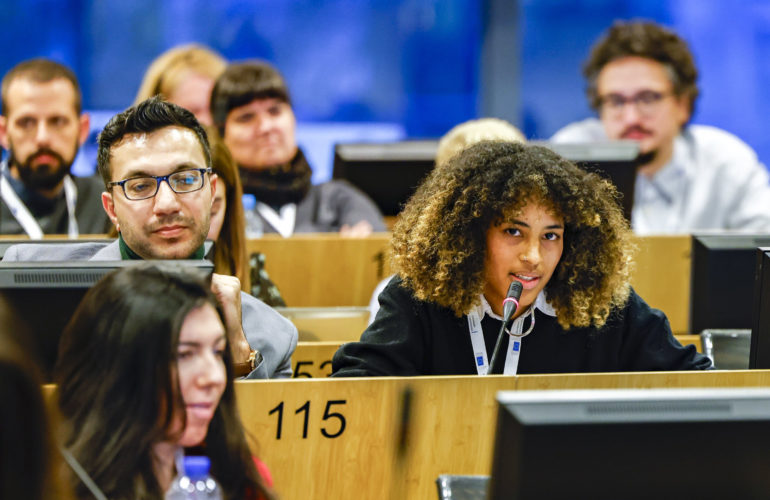Expert ICMC Deployees Assist Afghans Evacuated to the U.S.
ICMC partners with the U.S. government to deploy expert staff to the U.S. to deliver cultural orientation training for arrivals from Afghanistan.

When the U.S. withdrew its troops from Afghanistan in August 2021, thousands of Afghan citizens were evacuated to various U.S. military bases overseas. Within a program known as Operation Allies Welcome (OAW), the bases served as transit points for onward journeys to the U.S. As the program progressed, evacuated Afghans were received by several U.S. military bases, including that in Doha, Qatar, before their onward travel. Prior to its conclusion in October 2022, through OAW more than 88,500 Afghans had arrived in the U.S. and joined their new communities.
Once a collective accommodation center had been established in Virginia, new arrivals spent three to four weeks there prior to moving to longer term housing in communities across the U.S. Given ICMC’s experience of preparing thousands of Afghan refugees for resettlement via the ICMC-managed Resettlement Support Center for Turkey and the Middle East (RSC TuME),* the Department of State’s Bureau of Population, Refugees, and Migration (PRM) requested ICMC’s assistance to provide cultural orientation for these new arrivals.

A total of five ICMC Turkey expert staff were deployed to the U.S. between March and October 2022. Each ICMC Cultural Orientation trainer spent between five and fourteen weeks at the facility in Virginia to assist the implementation of the cultural orientation program. The two-and-a-half-day program covered topics including resettlement agency services, health, education and employment in the U.S., and cultural differences and adjustment. The program began almost immediately after the new arrivals reached Virginia, on the second or third day of their stay at the accommodation center.
“I first heard about the initiative in early March, and was deployed just two weeks later,” explains Ozan, the first ICMC staff member to travel to the U.S. With just under four years’ experience as an ICMC Cultural Orientation trainer at the ICMC Resettlement Support Center in Istanbul, where he helped prepare many groups of Afghan refugees for resettlement to the U.S., Ozan is well-placed to note the key differences in the needs and circumstances of Afghan refugees in Istanbul and those evacuated to the U.S.
“Refugees resettled from Turkey generally spend two or three years there before they leave for the U.S.,” he explains. “By contrast, this group experienced a rapid and traumatic upheaval before arriving in the U.S. very quickly. They had very limited time to adjust to their new reality.”
The content of the cultural orientation program was developed in advance by the U.S. government. “But humans are variable,” Ozan explains, “so we’re always adapting how we deliver course content.” A large proportion of the Afghan group are from highly educated and professional backgrounds, and ICMC staff adapted their classroom delivery to respond to their specific questions and priorities. “In general, this group had very high expectations for their lives and futures in the U.S.,” recalls Ozan. “We consistently tried to help them adjust these to a more realistic and practical level throughout the course.”

The deployment offered Cultural Orientation trainers a unique opportunity to gain new perspectives on the impact of their work. “In Turkey, we have personal contact with refugees during the cultural orientation program, but then we are in contact with them only through more formal channels,” Ozan explains. “In the three to four weeks after the cultural orientation program had concluded, I was able to directly observe the human adjustment process following the cultural orientation program,” he recalls. “I saw first-hand how the group overcame the challenges their new situation brought.”
Reflecting on his recommendations for future, similar programs, Ozan notes the importance of the context in which cultural orientation is delivered. “The staff and services at the collective accommodation facility were excellent,” he explains, “with school for children, sports, cookery, health care, legal advice and language classes. It was a really relaxed and welcoming environment for that initial adjustment to take place.”
In his advice for other Cultural Orientation trainers, Ozan emphasizes teaching expertise and awareness of the specific refugee group. “It’s not about knowing everything about the U.S. in the first instance, but much more about how we manage the classroom and the dynamics between students,” he explains. “This needs experience, and above all patience and understanding.”
* The ICMC Resettlement Support Center for Turkey and the Middle East (RSC TuME) is a long-standing partner of the U.S. Refugee Admissions Program. With offices in Istanbul and Beirut, it is one of the largest operations of its kind in the world. Offering a wide range of services, it contributes to making it possible for vulnerable refugees to begin a new life in the United States.

Rachel Westerby
Independent writer and researcher on migration, refugees and human rights.



